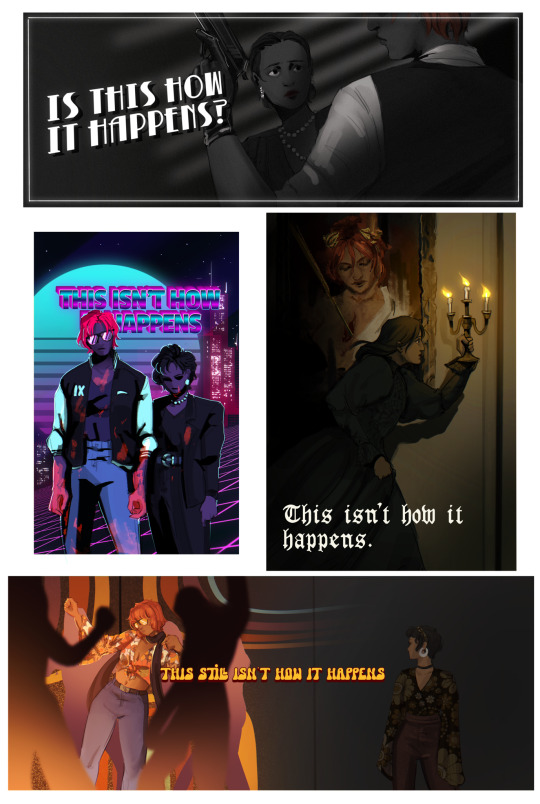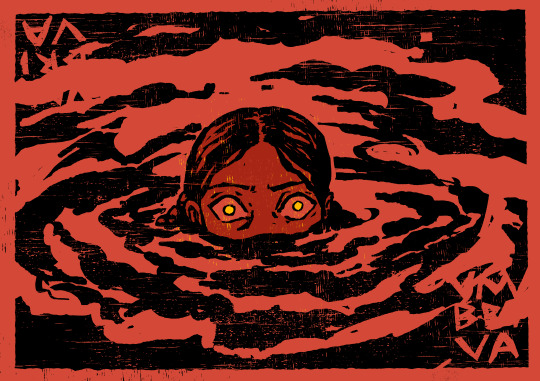thanergeticbloom
892 posts
Locked Tomb and griddlehark.
Don't wanna be here? Send us removal request.
Text

Paul The Apostle (Redux)
Update of an old illustration I did of Paul from 2022
love never fails. but where there are prophecies, they will cease; where there are tongues, they will be stilled; where there is knowledge, it will pass away.
Saint Paul, First Corinthians 13:8
2K notes
·
View notes
Text


more post-gideon the ninth reading sketches............
5K notes
·
View notes
Text
getting deeper into astrology and finding out my 7th house is under scorpio (sidereal) and has pluto as well as my north node in it makes my whole life, and my attachment to the locked tomb and any media with the types of themes within it make so much more sense lmao
I AM OBSESSED WITH INTENSE TRANSFORMATIVE SOUL CRUSHING LOVE
also my lilith and fortune is in 12th house pisces... I AM DRAWN TO HIDDEN TRAUMA AND FEELINGS AND THE MERGING OF SOULS
2 notes
·
View notes
Text
heartwarming: found family just as oppressive as real one
9K notes
·
View notes
Text
I know we talk about how John takes away the personhood of his disciples by renaming them, but - I do wonder if it isn't an inherent part of the resurrrection process. The first time he speaks Ulysses' and Titania's names out loud is also the first time he moves them. Gideon needs her soul to be reattached to her body, and she wakes up as Kiriona.
Names have power. We know this. John has been careful not to spill a single drop of blood in the last myriad. He has also, crucially, changed his last name. Arithmonyms are as unique to their bearers as their first names. The lyctors keep their first anmes private from an anyone but each other, and have all but forgotten their last names. The mere mention of the name Alecto makes John flinch, and Nona shatters her middle thoughts.
Abigail for my mothers. Pent for my people. Step two: analyse the soul. Understand its structure, its shape. Three syllables you did not even understand.
And Isis said unto Ra, "O my divine father, tell me thy name, for he who is able to pronounce his name liveth."
I wonder if Pyrrha remembers John's old name.
3K notes
·
View notes
Text
I've seen lots of discussions about the biblical/mythological significance of various character names in TLT, but it occurred to me that I'd never seen any discussion of the name Magnus.
It transpires there is a St Magnus, the patron saint of the Orkney isles. The general gist of whose legend is that he was a very nice chap who tried to make everyone get on in a fraught political situation and was consequently murdered horribly.
322 notes
·
View notes
Text
So, in Gideon the Ninth, a cavalier comes to Canaan House. Our cavalier is largely uninterested in necromancy, on account of being a huge jock with too many muscles who would rather be playing with swords or talking about playing with swords, and frequently mocks the weirdos who get worked up about things that aren't swords.
Our cavalier has a rocky relationship with their necromancer, who, it must be said, is kind of a terrible person. But by the end of the book, they've achieved true unity, just as Jod intended.
It's surprising to me that up to my most recent read, I hadn't realized how much Babs is clearly meant as a foil for Gideon, down to the sense of humor. Gideon loves Magnus's puns, but "anyone goes missing, we assume they're having a nap in the incinerator" is the kind of thing you can actually imagine Gideon saying.
So their differences become really interesting. His reflexive insistence on being called Prince Tern whenever his ego is threatened throws Gideon's indentured servant status into sharp relief. His shock and anger when rules are broken contrasts with her experience of rules as threats she has to manage. And while they both instinctively dislike most people, she rapidly makes a surprising number of friends. He looks down on everyone too much for that. (She distrusts. He disdains.)
And, of course, in the end, she chooses her fate, while he gets lyctored in the back.
The contrast between them definitely works with the themes of the book, but I think I missed it because it speaks even more to the the larger series: how cozy are you with power and privilege? How do you decide to navigate your bonds with others in a world that turns human relationships to horrible ends? For what cause are you willing to work with the systemic violence that animates everything around you?
Gideon makes her choices with open eyes. Babs turns away into a warm cocoon that turns out to be a bag over his head.
1K notes
·
View notes
Text
“two is for discipline heedless of trial” yeah motherfucker they were NOT heeding those trials. They couldn’t they didnt even know where the trials were. “heedless of trial” bitch they finally found the trials and were like uhmmm this violates OSHA.
927 notes
·
View notes
Text
Thinking about how Palamedes tells Pash that they "are conversant with the concept of family in the Houses" in Nona....because, like, are they? Are they really?
Palamedes calls his own mother by her full name or job title more than he calls her 'mother'. Their relationship is COLLEGIAL at best. The Sixth raise their children in some kind of communal academic system, from what we can see in canon. Meanwhile, on the Second, it's all about that sweet sweet military command structure. On the Seventh, your parents literally try to pass super cancer onto you, and probably die of it themselves before you reach puberty. The Eighth is a monastic order where EVERYONE calls each other 'brother' or 'sister', regardless of family relationship. From everything we hear, the Tridentarius' parents are fucked-up in some way. The Ninth is....the Ninth, and on the Fourth, parents just tend to be dead.
So, like, are they really 'conversant with the idea of family'? Everything about the system John has set up discourages real family relationships. There is no socially acceptable way to share a family name with your spouse, parent, or sibling - the arithmonyms encourage you to identify with your HOUSE, not your family, and every time characters share an arithmonym, that is considered 'weird' (see the Tridentarii). John's system demands allegiance to the EMPIRE, not any individual family units.
This dissolution of family has the side effect of also dissolving (unjust) gendered roles, but it is also VERY effective at creating the existential, deep loneliness that so many of these characters experience and that John's system then uses to fuel their loyalty to him as God. It's this dissolution of family that creates the codependent structures you see in so many cav-necro relationships (Cam and Pal above all else), because WHERE ELSE but in this (fundamentally militaristic) relationship that was originally intended to serve the Empire could you find the closeness family often provides.
And, like, every time characters prioritise their chosen or blood family over the values of the Empire, it's transgressive. Any relationship that emphasises the individual - as a spouse, friend, lover, sibling, child, parent - over the 'imperial role' of cav, necro, soldier, or servant, is transgressive in the world of TLT. Magnus and Abigail are transgressive for that. Gideon and Harrow are. Even the Tridentarii have something going on that seems to go against imperial power structures, even if it's a different kind of fucked-up. Cam and Pal are such a complex case because they DO earnestly love each other outside of their role as necro and cav, but are so fundamentally alienated from healthy relationship dynamics because of their absurd upbringing that they immediately become *like that*, to the point of doing ye olde soul-merger. Still - they fundamentally hold allegiance to each other as family of some sort, whether romantic or platonic.
Which, I think, is why it's so perfect and messed-up and appropriate that Juno Zeta, Palamedes' literal mother, spends the last few minutes of her son's earthly existence as an individual quizzing We Suffer about her family structure. Rather than. Y'know. Talking to her son. Who is about to eradicate himself as an individual within the one relationship that ever transgressed that enforced, non-familial distance.
Camilla, meanwhile, does not let her fathers watch her death/ascension at all.
2K notes
·
View notes
Text
I am genuinely curious.
For those of you who have read the entirety of The Locked Tomb, in what order would you rate the books?
Of course, feel free to express why you made your choice in the comments/reblogs! I think there's very good reasons why someone might choose any of these rankings! I care more about the personal reasons, but also I'm just interested in what the fandom's overall reception is.
#woohoo I'm a ntn>gtn>htn hipster#like don't get me wrong I love htn#harrow is my fave beyond comparison and I fucking love all the fucked up shit#but the establishment of charactersthe world and the murder mystery vibes of gtn#and the found family and general nature of humanity theme of ntn fuckin gets to me and has me reaching for them more often#htn is a harder more uncomfortable read#and that's why it's great
95 notes
·
View notes
Text
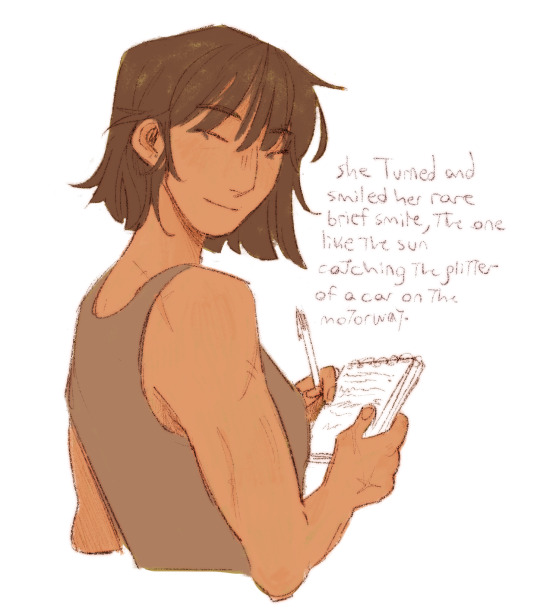
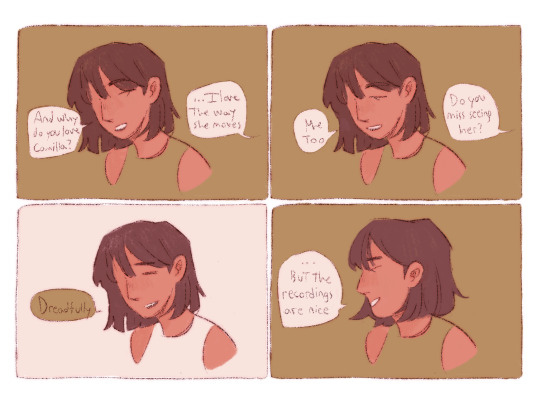
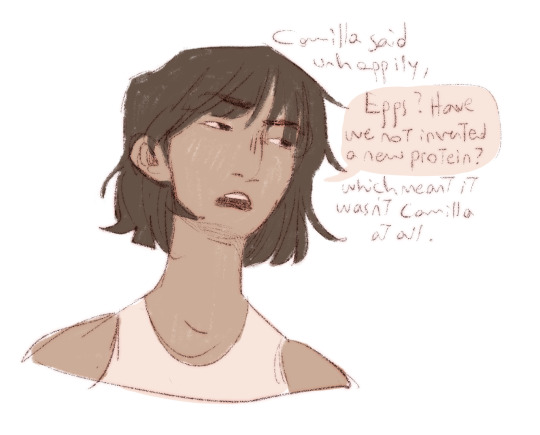
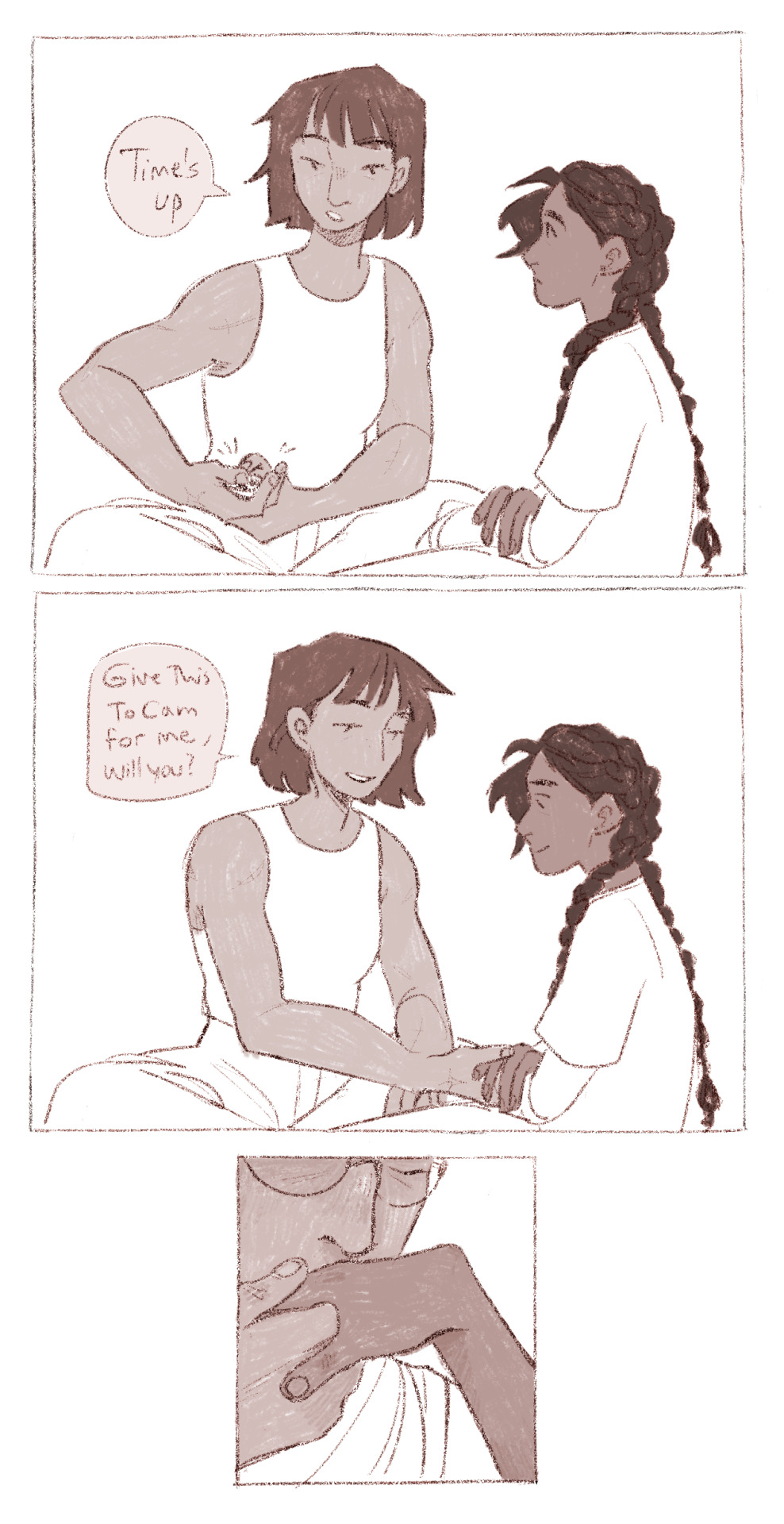
december: finish nona january-april: very intentionally Not think about it lest I break irreparably forever now: being soooo brave about it
7K notes
·
View notes



